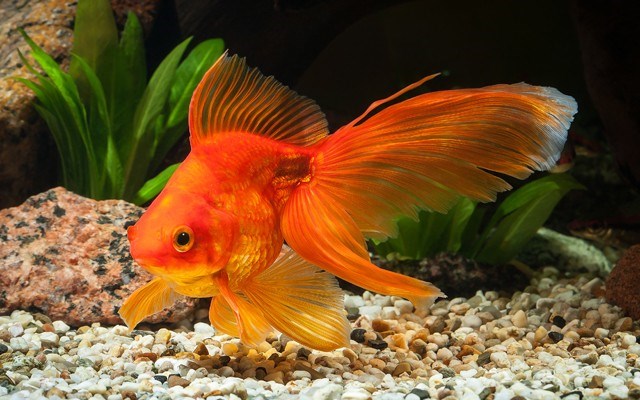What may seem like an act of kindness can wreak havoc on local ecosystems. Unwanted pet goldfish have been let loose and are rapidly taking over Millar's Pond, a natural wetland in the Whistler Bayshores area. They have also been spotted in Alta Lake. Goldfish can grow up to 41 centimetres (16 inches). As they grow, they eat young native fish and fish eggs, insects, larvae, and aquatic plants. They also stir up mud when they feed, making the water cloudy and difficult for wild fish to feed and aquatic plants to grow in. Local residents have noticed a decline in native frogs and salamanders since goldfish first appeared in Millar's Pond. So where did these goldfish come from?
They and many other invasive animal problems we are now experiencing in B.C., are species that were originally sold as pets, or plants for aquariums. Well-meaning and unsuspecting pet owners sometimes release their pets into the wild once they no longer can or want to care for them. Seemingly harmless, the animals can become invasive given the right conditions. The Red-Eared Slider Turtle, American Bullfrog, European Rabbit, and Eurasian Watermilfoil (an aquarium plant) are a few other species that are commonly let loose in the wild and can have devastating impacts.
Releasing pets into the wild is also inhumane. The ones that do not become invasive often die of starvation or other factors in an environment they are not accustomed to. There is also the possibility that the animal will introduce disease or parasites into the local ecosystem.
So what should you do with your unwanted pet instead? Check if the place that you purchased the animal will take it back, or check local science centres, zoos, or aquariums to see if they can use the animal for educational purposes. Dry and freeze unwanted aquatic plant material and add it to non-composted trash. If all else fails, have a qualified veterinarian euthanize the animal in a humane manner. This is far better than letting it starve to death or destroy the homes of native animals and plants.
Whatever you do, be a responsible pet owner and Don't Let it Loose!
Luckily, help is on the horizon for Millar's pond. The Sea to Sky Invasive Species Council (SSISC) has been working with the Resort Municipality of Whistler and concerned Bayshores residents on improving educational signage near the pond. The Resort Municipality of Whistler is assessing available control solutions to remove the goldfish and return the pond to its natural state.
If you spot any of the species listed in this article, or any other animal species that looks like it doesn't belong, email a photo to SSISC at ssinvasives@gmail.com or use the Report Invasives BC app in iTunes.




